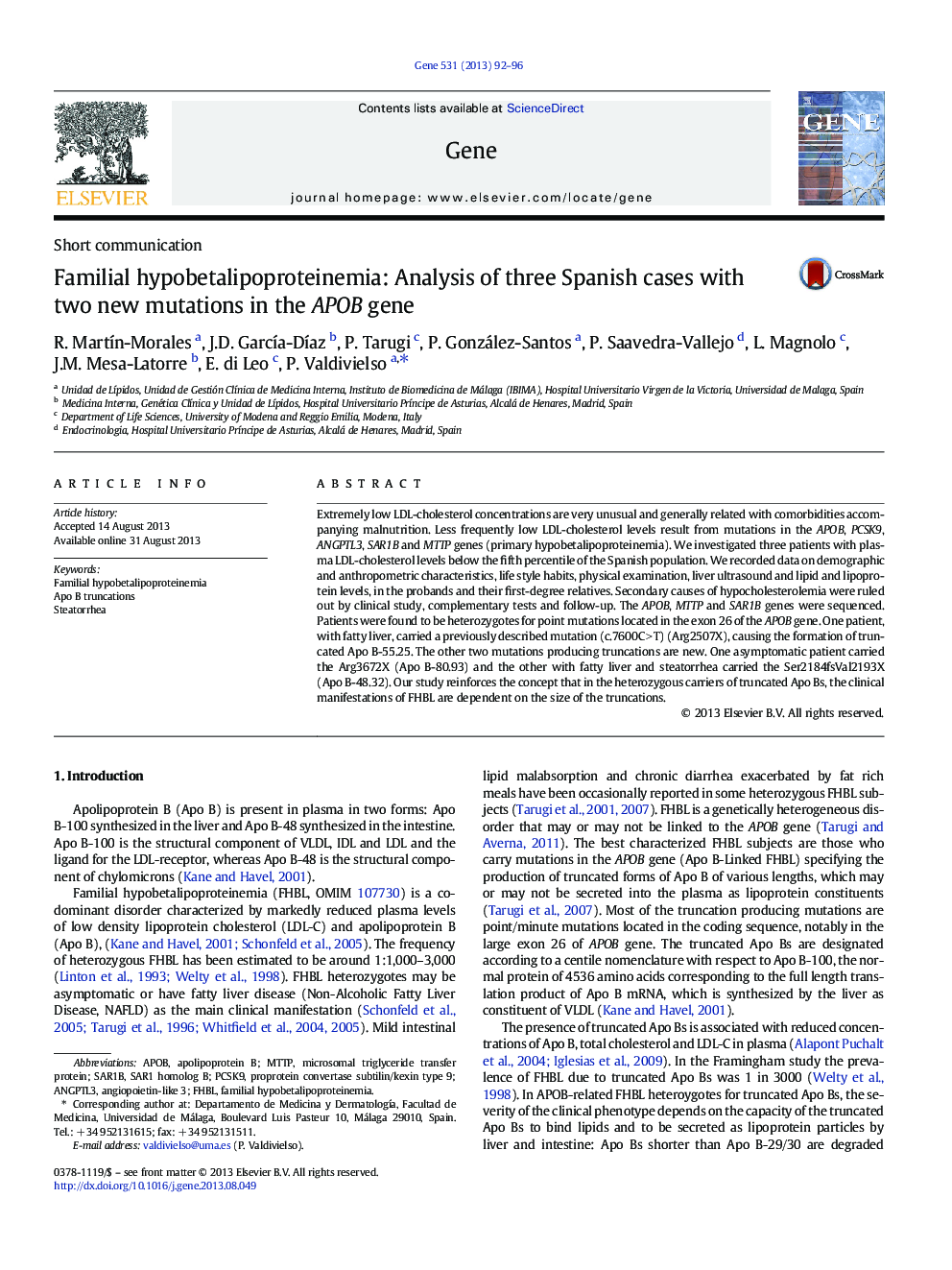| Article ID | Journal | Published Year | Pages | File Type |
|---|---|---|---|---|
| 2816926 | Gene | 2013 | 5 Pages |
•Very low levels of cholesterol are usually associated to hyperthyroidism, malnutrition, AIDS or malignancy.•Primary hypobetalipoproteinemia is a very rare condition.•Mutation in APO B, SARB 1 and PCSK9 genes causes primary hypobetalipoproteinemia.•Symptoms are linked to the length of the apo B protein (from liver steatosis to malabsorption).
Extremely low LDL-cholesterol concentrations are very unusual and generally related with comorbidities accompanying malnutrition. Less frequently low LDL-cholesterol levels result from mutations in the APOB, PCSK9, ANGPTL3, SAR1B and MTTP genes (primary hypobetalipoproteinemia). We investigated three patients with plasma LDL-cholesterol levels below the fifth percentile of the Spanish population. We recorded data on demographic and anthropometric characteristics, life style habits, physical examination, liver ultrasound and lipid and lipoprotein levels, in the probands and their first-degree relatives. Secondary causes of hypocholesterolemia were ruled out by clinical study, complementary tests and follow-up. The APOB, MTTP and SAR1B genes were sequenced. Patients were found to be heterozygotes for point mutations located in the exon 26 of the APOB gene. One patient, with fatty liver, carried a previously described mutation (c.7600C > T) (Arg2507X), causing the formation of truncated Apo B-55.25. The other two mutations producing truncations are new. One asymptomatic patient carried the Arg3672X (Apo B-80.93) and the other with fatty liver and steatorrhea carried the Ser2184fsVal2193X (Apo B-48.32). Our study reinforces the concept that in the heterozygous carriers of truncated Apo Bs, the clinical manifestations of FHBL are dependent on the size of the truncations.
